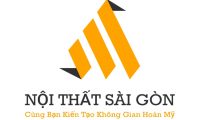Our reports can be shared in a variety of formats to keep your stakeholders updated. Project managers are also responsible for workload management, which is the process of forecasting, planning, scheduling and monitoring the workload of an individual, team or organization. The goal is to balance workload evenly across your team to have them work at capacity and be more productive. It’s a discipline that involves project management, resource scheduling, capacity planning and much more. As noted, these aren’t exactly skills but personality traits that benefit project managers and their teams. Some personality traits that serve project managers include being responsible and delivering on their commitments.
The 15 Skills Every Project Manager Must Have in 2025
From drafting a plan to presenting to stakeholders at the end of a Phase or a Sprint, project managers will find themselves writing a great deal of words throughout the course of a project. Project managers need to be able to write detailed plans and reports in a manner that is easy for readers to understand while also having a grasp of business terminology. Project managers should be able to create a clear timeline with key milestones mapped out. Visualizing through the use of a tool like the project roadmap gives teams an idea of when they should achieve certain tasks. The project manager should be able to identify which tasks should be prioritized to minimize delays. There are “natural” or Project Manager job logical dependencies between different tasks in a project.
Collaboration
Traditionally, project roadmaps have been created using Gantt chart-like software, displaying the project schedule as a horizontal bar chart. Today, there are various tools available for creating effective roadmaps. People programmer say that money makes the world go round, and it certainly makes projects go round too. Budgeting and cost control are the unsung heroes of project management. Of course, there isn’t a one-size-fits-all solution for time management. Some people might like digital to-do lists while others prefer good ol’ pen and paper.
Project Planning and Methodology
Project Managers are the orchestrators of success, ensuring that projects hit all the right notes. Entry-level professionals in the field of project management can give themselves a headstart on their careers with CompTIA Project+ certification. This credential covers the basics of project management, scheduling, cost controls, risk management, communications, change management, and more. Generally speaking, soft skills are the traits and abilities that define you both as a person and an employee.
- Since the field of project management tends to focus so heavily on teamwork, collaboration, and communication, it’s no surprise that many of the soft skills needed revolve around similar themes.
- The project execution phase often involves multiple tasks that require creation, organization, allocation, and monitoring to ensure they are within the project constraints.
- Cost accounting in project management involves tracking and managing all financial aspects of a project.
- Believe it or not—using such a tool will help you improve your time management skills quickly.
- In project management, negotiation is an important skill for conflict resolution and stakeholder management.
- Beyond technical know-how, a repertoire of essential skills — both hard and soft — forms the foundation of this profession.

